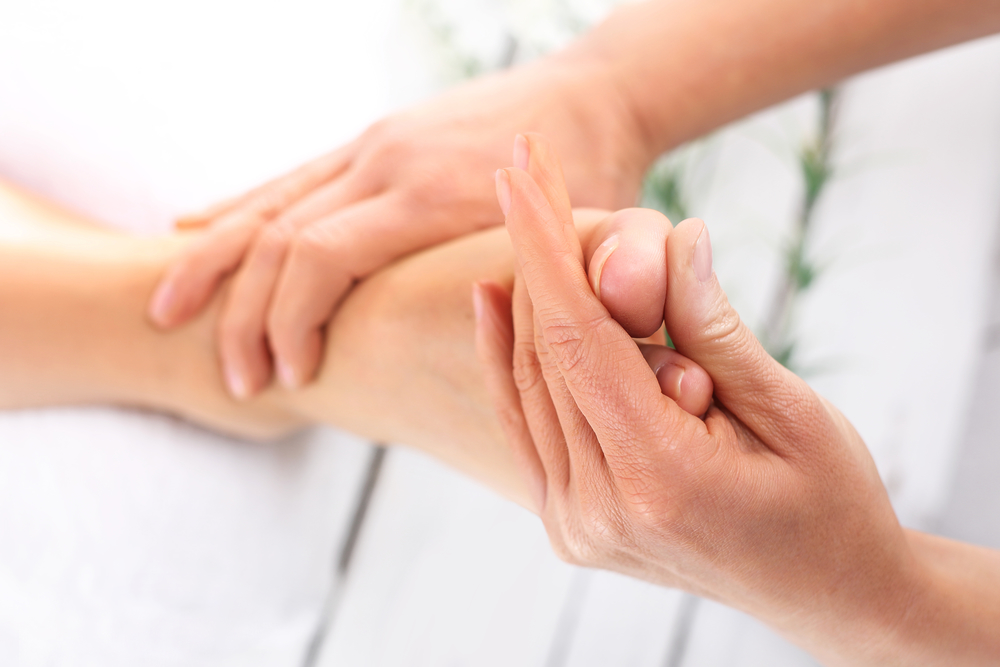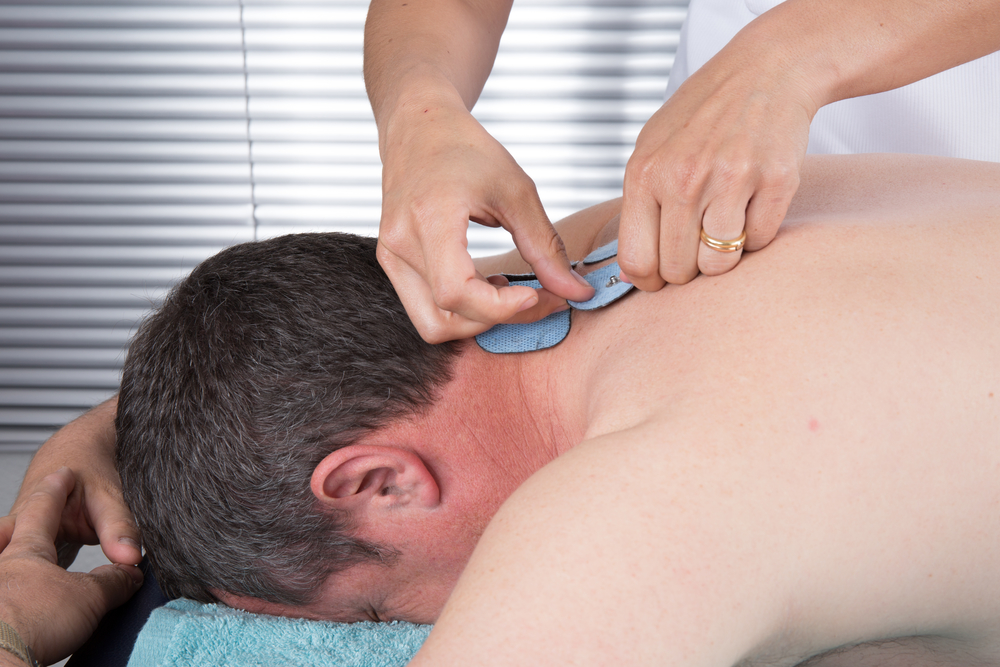 Although often misdiagnosed, peripheral neuropathy affects over 20 million people in the United States. When damage occurs to the peripheral nervous system from either damage or disease, it can inhibit the body’s ability to properly function. Carpal tunnel syndrome and diabetes have both been linked to peripheral neuropathy. Side effects may include numbness, a tingling sensation, pain, or muscle weakness throughout your upper and lower extremities. Dr. Cody Doyle has over 20 years of experience in helping diagnose and reduce the symptoms of this disorder. At Doyle Chiropractic & Acupuncture, we offer a variety of treatments to help you improve your quality of life.
Although often misdiagnosed, peripheral neuropathy affects over 20 million people in the United States. When damage occurs to the peripheral nervous system from either damage or disease, it can inhibit the body’s ability to properly function. Carpal tunnel syndrome and diabetes have both been linked to peripheral neuropathy. Side effects may include numbness, a tingling sensation, pain, or muscle weakness throughout your upper and lower extremities. Dr. Cody Doyle has over 20 years of experience in helping diagnose and reduce the symptoms of this disorder. At Doyle Chiropractic & Acupuncture, we offer a variety of treatments to help you improve your quality of life.
What is Peripheral Neuropathy?
Peripheral neuropathy negatively affects the nerves within your body. During this condition, communication from the peripheral nerves to the brain and spinal cord and to the rest of the body is disrupted due to damage or disease. The peripheral nerves connect the brain and spinal cord to the skin, muscle, and organs throughout the body, and are responsible for alerting it how to function properly.
Signs and Symptoms
 The side effects of damaged nerves will vary depending on the location of your peripheral neuropathy, but generally occur in the upper and lower extremities and may include:
The side effects of damaged nerves will vary depending on the location of your peripheral neuropathy, but generally occur in the upper and lower extremities and may include:
- Decreased mobility and muscle movement
- Radiating or throbbing pain
- Tingling sensation
- Numbness
- Skin sensitivity
- Burning or freezing sensation
- Insomnia
- Restless leg syndrome
- Depression
- Difficulty walking
- Muscle weakness
Common Causes of Peripheral Neuropathy
Peripheral neuropathy can develop after trauma, surgery, or injury. In some cases, if you have a family history of this disorder, peripheral neuropathy can even be inherited. Common causes include:
- Automobile accidents or sports-related injury
- Postsurgical complications
- Autoimmune diseases
- Repetitive activities (typing, bending, heavy lifting)
- Diabetes
- Viral and bacterial infections (herpes, HIV, shingles, Lyme disease)
- Environmental or medication toxicity
- Heavy alcohol consumption
- Disc issues
- Nutritional deficiencies
- Gut, liver, or kidney disorders
Diagnosing and Treating Peripheral Neuropathy
 During your initial consultation, Dr. Doyle will complete a detailed examination to review your medical and family history, lifestyle habits, alcohol consumption, past and current medications, and toxin exposure. In addition, he will also perform a series of tests, such as muscle strength and your body’s ability to sense vibration, pain, and temperature to determine the root cause of your peripheral neuropathy and the extent of damage.
During your initial consultation, Dr. Doyle will complete a detailed examination to review your medical and family history, lifestyle habits, alcohol consumption, past and current medications, and toxin exposure. In addition, he will also perform a series of tests, such as muscle strength and your body’s ability to sense vibration, pain, and temperature to determine the root cause of your peripheral neuropathy and the extent of damage.
After carefully reviewing your results, Dr. Doyle will determine if addressing your musculoskeletal dysfunction and/or any subluxations will be of benefit in mitigating your symptoms. If so, he will customize a treatment plan to reduce symptoms and improve your health. He believes in addressing a condition from multiple aspects, so the extent of treatment will depend on the complexity of your disorder and the types of treatments required. If your peripheral neuropathy is a result of deficiencies or toxins within your body, he may first prescribe nutritional and herbal therapies in addition to a detoxification program to purify your body.
Other treatments can include premodulated muscle stimulation (strategic electrical stimulation), ultrasound, chiropractic care, and acupuncture. Dr. Doyle will monitor you over a series of follow-up appointments to ensure you are responding well to treatment and make any necessary adjustments along the away.
Reduce Your Discomfort
Peripheral neuropathy can be a frustrating and debilitating condition to live with. At Doyle Chiropractic & Acupuncture, we want to minimize symptoms and improve your emotional and physical wellbeing. Contact us today to schedule your initial consultation with Dr. Doyle and learn more about peripheral neuropathy and the treatments we provide. We care for patients from North Fort Worth, including Trophy Club, Grapevine, Southlake, Argyle, Keller, NRH, and Justin.
To reach our Roanoke, TX office, you can contact us online or call (817) 767-5430.